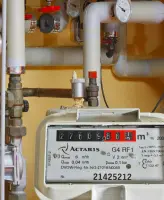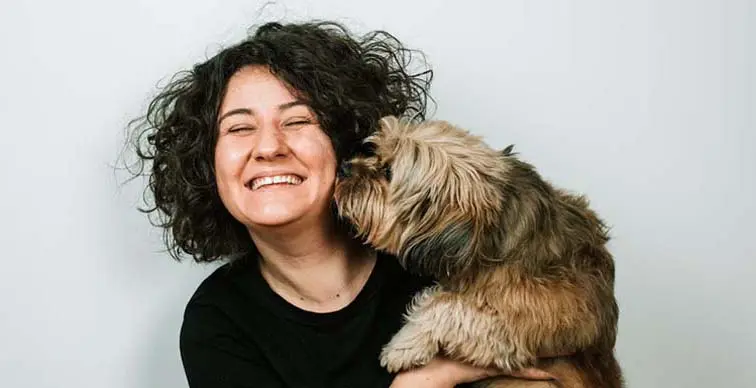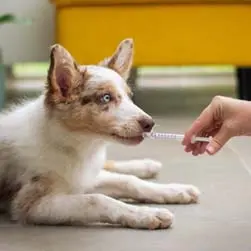Posted on: 15/11/2022
Category: Pet
Whether you're insuring a cat or a dog there are a few key principles to consider when you compare pet insurance.
- How quickly the pet insurance cover starts
This principle has 2 considerations, firstly the pets age. Typically, the best pet insurance companies will cover your pet from around 8 weeks. But some policies start from just 4 weeks old. We've included the minimum pet age with our comparison table above so you know the minimum age your pet will be covered before you make your choice. The second consideration is how quickly the cover actually starts; some pet insurance companies won’t cover your furry friend immediately. This is because pet insurance is designed to cover your pet for unexpected illness of accidents. This means you'd be unable to make a claim for an existing condition within a certain initial period (usually first 14 days), but some of the best pet insurance companies will offer immediate cover.
- Ensuring you get the correct level of cover
Pet insurance companies all offer different levels of value of vets fees that they are willing to cover within you policy. Some even have different cover bands, with entry levels of vet fees starting around £5000. However, most lifetime pet insurance policies will cover a minimum of £10,000 of vets fees. It is worth considering whether there is a time limit on these thresholds. For example, whether the £10,000 covers the lifetime of the policy, or an annual allowance.
- Type of pet insurance cover
Lifetime Vs annual pet insurance policies is an ongoing debate, the answer is it depends on your pet's circumstances. Unlike some insurance policies, like car insurance where you would typically shop around each year, pet insurance offer lifetime cover. This is usually deemed as a more premium option, as it should provide a more comprehensive and greater level of cover for your furry friend. A key reason for choosing a lifetime pet insurance policy, is because most pet insures don’t cover pre-existing conditions or illnesses, thus switching to a new provider wouldn’t make sense if your cat or dog was to develop a long-term illness such as diabetes or arthritis. As your pet wouldn’t be covered for these illnesses. Lifetime cover in this case would give you the protection you need, most people will choose for their lifetime pet insurance cover to be on a rolling contract so to ensure it never lapses. Time limited policies, such as annual policies are ok to cover short term illnesses or accidents but for the greater protection, although usually slightly more expensive, a lifetime policy would provide a better level of protection for your cat or dog.
- Cost
The cost of a pet insurance policies is determined the type of cover you choose, which is made up of a number of factors. There are 5 main factors, detailed below:
Factor 1 - Type of policy
- Accident only pet insurance is usually the cheaper is often the best option for cheap pet insurance, but as its name suggests, would only pay out vet fees for treatment of an accident. This means that if your pet was to become ill, you would not be covered.
- Time specific pet insurance is also usually one of the cheaper options for pet insurance. Typically, a 12-month policy and designed to support pet owners with vet fees for treatments required for pets with short term illnesses.
- Per condition pet insurance has an allowance of vet fees that can be claimed for a single medical condition. There is no time limit on the policy but you would only be able to claim as much as the maximum vet fees allow for a single condition, the value is usually around £4000 - £8000. This would only be suitable if the condition wasn’t going to be expensive and exceed the value covered.
- Lifetime pet insurance is the most comprehensive level of pet insurance cover, while it has the best levels of cover, it is ultimately more expensive for this benefit. The levels of cover for things like vet fees renew each year, but the policy is ongoing. This is a great policy for pets if you think they are at risk of long term or reoccurring illnesses and conditions.
Factor 2 - Where you live
The address associated with your policy has quite an impact on the price of your policy. Research has shown that with everything else the same, the region to which you live in can impact the cost of the policy. With greater London being one of the most expensive locations to insure your furry friends.
Factor 3 - Age of your pet
Like with humans, as our pets get older, they become slower, more accident prone and higher risk of long-term illness. This directly relates to pet insurance policies being more expensive for older animals. For this reason, insuring a one- or two-year-old pet would be far less than insuring a pet 8 years or older. Specifically in dog insurance, the difference in a 1-year-old dog insurance policy Vs an 8-year-old dog insurance policy can be up to 10x more expensive. A lot of people get frustrated with lifetime pet insurance policies increasing in price over time, as they feel like the insurance companies are increasing the price of the pet insurance policy for the sake of it. But actually, this price increase over time usually directly relates to the risk associated with your pet’s age.
Factor 4 - Breed
The breed of your cat or dog will impact the price of your pet insurance policy. There are a few general items to consider here:
Dog insurance policies:
- Mixed-breed dogs are cheaper to insure than pedigree dogs.
- Smaller dogs cost less to insure than bigger dogs.
- Insurance for female dogs cost slightly less than insurance for male dogs (even if they have been neutered or spayed).
- The cost of insuring cross-breed dogs (such as Cockapoos or Labradoodles) will reflect the cost of insurance for the dominant breed.
Cat insurance policies:
- Purebred cat's insurance will cost more than moggies to insure as they are more prone to develop illnesses due to their less diverse gene pool.
- Particular purebred cats can also see higher cat insurance policies due to certain breeds being linked with particular illnesses, for example Siamese cats are known to be prone to kidney and respiratory diseases. Also, Persian cats are susceptible to progressive retinal atrophy (a disease that can also cause blindness).
- Moggies or mixed breed cats are usually cheaper to cover when you buy pet insurance due to the reasons detailed above.
5. Offers and discounts
When you're comparing the best pet insurance companies, a very important factor is any offers, discounts or introductory benefits you can get from the pet insurance providers. The best insurance policies will include benefits for things like multi-pet cover, this is where you cover more than one animal on the same policy and as a result the pet insurance company will give you % discount off of the policy price. Introductory discounts can also be hugely beneficial and sway the decision when buying the best pet insurance policy; offers such as amazon vouchers, first month free or % off your premium are all strong offers to get customers to commit to a pet insurance company.








